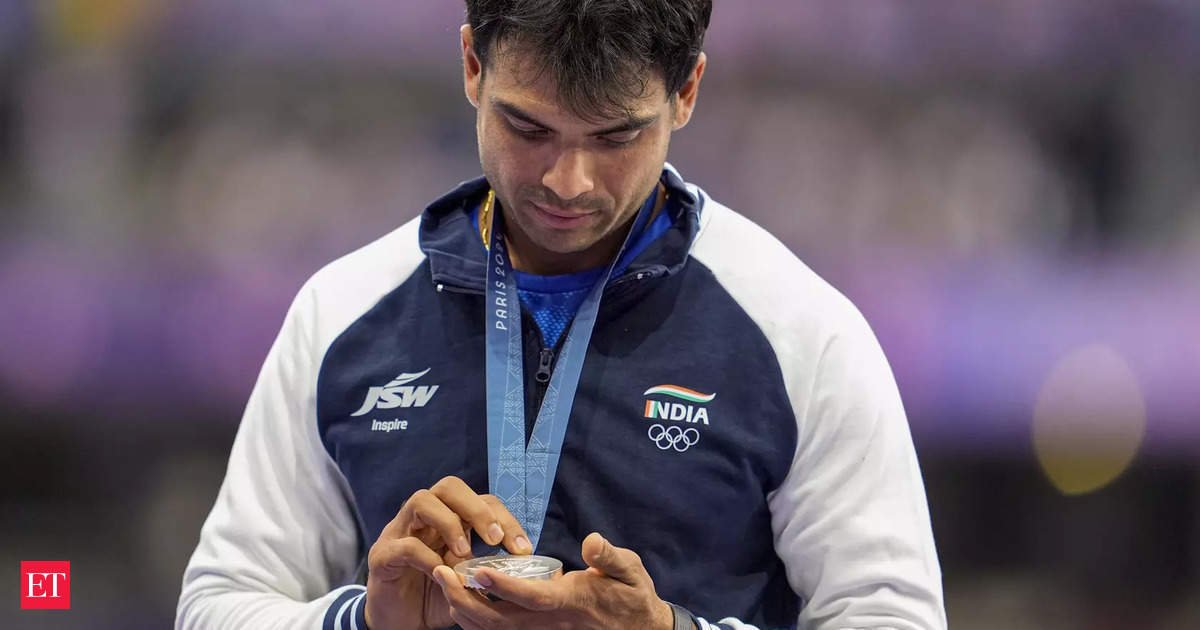Here is the list of award money athletes get for finishing on the podium in Olympics.
Hong Kong and Singapore top the list for the highest cash payouts for Olympic victories.
| Country | Gold | Silver | Bronze |
| Hong Kong | $768,000 | $384,000 | $192,000 |
| Singapore | $745,000 | $373,000 | $186,000 |
| Indonesia | $300,000 | $150,000 | $60,000 |
| Israel | $271,000 | $216,000 | $135,000 |
| Republic of Kazakhstan | $250,000 | $150,000 | $75,000 |
| Malaysia | $216,000 | $65,000 | $22,000 |
| Spain | $102,000 | $52,000 | $33,000 |
| France | $87,000 | $43,000 | $22,000 |
| South Korea | $45,000 | $25,000 | $18,000 |
| United States | $38,000 | $23,000 | $15,000 |
| Japan | $32,000 | $13,000 | $6,000 |
| Poland | $25,000 | $19,000 | $14,000 |
| Germany | $22,000 | $16,000 | $11,000 |
| Australia | $13,000 | $10,000 | $7,000 |
Source: National Olympic Committees, local reports
Hong Kong and Singapore are among the highest contributors when it comes to rewarding Olympic athletes. Hong Kong recently increased its cash rewards by 20% since the Tokyo Summer Olympics. Gold medalists from Hong Kong now receive 6 million Hong Kong dollars ($768,000). Silver and bronze medalists earn HK$3 million and HK$1.5 million, respectively.
Singapore also offers significant financial incentives. The country provides 1 million Singapore dollars ($745,300) for a gold medal, SG$500,000 for a silver, and SG$250,000 for a bronze. Joseph Schooling, the only Singaporean athlete to receive the top cash bonus, earned it by defeating Michael Phelps in the 100-meter butterfly at the 2016 Rio Olympics.
Countries Increased Olympic Rewards Across the Globe
Other countries also offer substantial cash rewards for Olympic success. Israel awards a million Israeli shekels ($270,537) for a gold medal, a 50% increase from the Tokyo Games. Malaysia, Kazakhstan, and Indonesia also offer six-figure rewards to their gold medalists.France, the host of the Paris 2024 Olympics, has increased its cash incentives. Gold medalists are awarded 80,000 euros ($86,528), which is 15,000 euros more than what was offered at the Tokyo Olympics. Germany also rewards its athletes, with gold medalists receiving 20,000 euros. The German Sports Aid Foundation extends financial prizes to athletes finishing up to eighth place.
Indian Olympic athletes receive rewards from both the government and the national sports body. Gold medalists are awarded 7.5 million rupees ($90,000) from the government, while the Indian Olympic Association provides an additional 10 million rupees.
Non-Monetary Rewards for Olympic Winners: Apartments, Cars, and More
In addition to monetary rewards, some countries offer other types of prizes. Kazakhstan’s athletes can earn $250,000 for a gold medal, $150,000 for silver, and $75,000 for bronze. They also receive apartments for their achievements.
Malaysia’s National Sports Council offers 1 million ringgit ($215,563) for individual gold medalists, with silver and bronze medalists receiving 300,000 and 100,000 ringgit, respectively. Private companies in Malaysia sometimes provide additional incentives such as luxury-serviced apartments or extra cash. According to a local media report, all Malaysian athletes who secure a podium finish will receive a “foreign-made car,” as stated by Malaysia’s youth and sports minister, Hannah Yeoh.
South Korea offers a combination of prize money and lifelong pensions. Gold medalists receive 63 million Korean won ($43,288) and can choose between a lifelong monthly pension of a million won or a lump sum of 67.2 million won. Silver and bronze medalists earn 35 million and 25 million won, respectively. Some South Korean athletes also receive gifts like free drinks and transportation.
In Hong Kong, the public transit operator provides free lifetime tickets to the city’s medalists. In Poland, silver medalist Klaudia Zwolińska received 200,000 Polish zloty ($50,374) from the Polish Olympic Committee, along with a painting, a holiday voucher, a scholarship, and a diamond for her performance in the women’s canoe slalom K1 competition.
Creative and Unique Rewards for Olympians
Olympians have often been gifted unique tokens of appreciation. In Malaysia, a local chain promised free food and teh tarik (a popular hot milk tea beverage in Southeast Asia) for life to athletes who represented the country at the Tokyo Games. Japanese table tennis player Kasumi Ishikawa received 100 bags of rice after winning a silver medal at the Tokyo Games. Indonesian badminton gold medalists Apriyani Rahayu and Greysia Polii were gifted five cows, a meatball restaurant, and a new house.
In contrast, athletes from countries like Great Britain and Norway do not receive direct cash bonuses for winning medals. Despite this, their achievements are celebrated in various other ways, reflecting the diverse approaches to rewarding Olympic success across the world.





